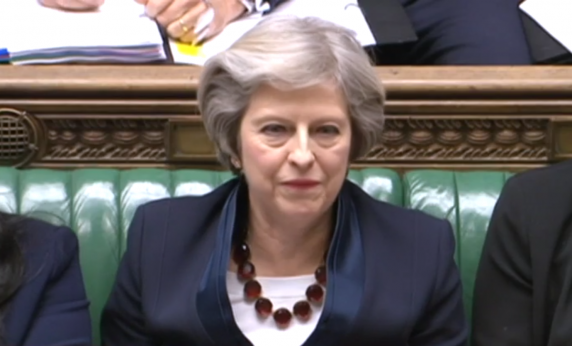Prime Minister Theresa May should apologise to GPs for scapegoating them for the A&E crisis, Tory MP, House of Commons health committee chair and former GP Dr Sarah Wollaston has said.
Her comments come as a Downing Street source told newspapers that GP practices were ‘not providing access that patients need’.
Saturday papers quoted a No 10 source as saying that it ‘is increasingly clear that a large number of surgeries are not providing access that patients need – and that patients are suffering as a result because they are then forced to go to A&E to seek care’.
‘It’s also bad for hospitals, who then face additional pressure on their services,’ the source added.
Papers reported that Prime Minister Theresa May wants GP practices to open seven days a week, 8am to 8pm, unless they could prove the demand was not there, or risk losing funding.
After the Mail exposes half-day surgeries, doctors are told to open from 8am-8pm – or lose cash https://t.co/DvvzQmCP3c
— Daily Mail U.K. (@DailyMailUK) January 14, 2017
But Dr Wollaston told the Independent: ‘I do feel this is going to backfire, I think it was the wrong thing to say, and I think frankly they should apologise.’
She also took to Twitter to say it was ‘beyond belief that anyone would think that attacking an overstretched and demoralised primary care would serve any purpose whatsoever’.
She added that both the ‘public and NHS staff [deserve] better than scapegoating, smoke and mirrors’ and the Government ‘needs to start with honest discussion of the background pressures’.
According to Dr Wollaston the Government ‘has failed to grasp scale of the increase in complexity of cases in A&E/GP’ and the ‘crisis [is] not driven by trivial conditions in wrong place.’
She added that the Government has ‘over-promised on 7/7 8am-8pm routine service’ as ‘over-stretched primary care doesn’t [have the] workforce to match without harming existing services’.
She said the real reason behind the crisis was ‘financial squeeze over last Parliament [with] average 1.1% uplift/year at a time of huge demographic/demand surge and now set to fall [ahead of] 2018/19.’
Pretty dismal stuff for govt to scapegoat GPs for very serious NHS pressures. Failure to understand the complexity or own responsibility
— Sarah Wollaston MP (@sarahwollaston) January 13, 2017
GPC chair Dr Chaand Nagpaul said that ‘much of the pressure on A&E has nothing to do with general practice: it has to do with seriously ill patients for whom seeing a GP would not prevent a hospital admission’
He said the long A&E waiting times were caused by ‘a chronic shortage of beds, as well as delays in discharging elderly patients due to a funding crisis in community and social care’.
He added: ‘This is not the time to deflect blame or scapegoat overstretched GP services, when the fundamental cause of this crisis is that funding is not keeping up with demand…
‘Rather than trying to shamelessly shift the blame onto GPs, the Government should take responsibility for a crisis of its own making and outline an emergency plan to get to grips with the underlying cause, which is the chronic under-resourcing of the NHS and social care.’
RCGP chair Professor Helen Stokes-Lampard said it was ‘not the case that GP surgery routine opening hours are contributing to the pressures our colleagues in A&E departments are currently facing’.
‘GPs and our teams are also struggling to cope with increasing patient demand without enough investment, and without nearly enough family doctors and practice staff to deal with it – this is a year-long problem for us, not just during the winter,’ she said.
On seven-day access, she said that it had ‘never made sense to force GPs to offer services that there is little patient demand for’.
She added: ‘Blaming GPs for the crisis facing our NHS is not going to help anyone, instead we need to start investing in our health service properly, so that there are adequate resources and clinical staff to deliver the care our patients need and deserve.’

















